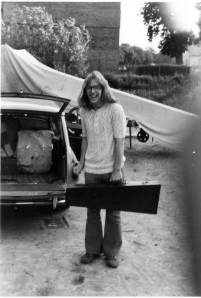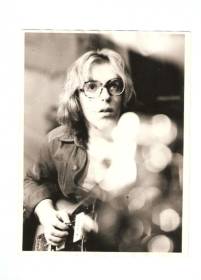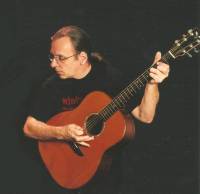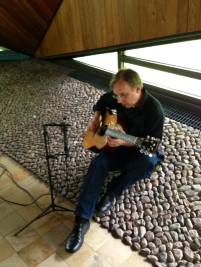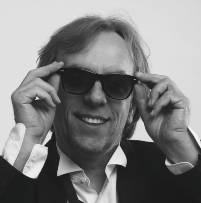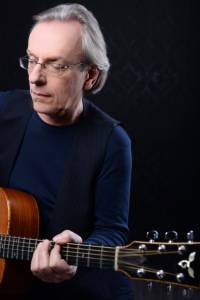Bio (English):
Born in in Herzberg, Klunker was initially self-taught and in 1971, then barely nineteen, he replaced the guitarist Hansi Biebl in the Modern Soul Band. In addition to that, he earned his certification as a professional musician from the Friedrichshain School of Music, something much coveted in the former East Germany. Through the Modern Soul Band he got to know Klaus Lenz, and with Lenz's big band, in which the singers Veronika Fischer, Christiane Ufholz, Uschi Brüning and Klaus Nowodworski were involved, took part in numerous tours within the GDR. In 1974, he joined the Hansi Biebl Blues Band, with whom he recorded the LP Savannah in 1975. He then belonged to the elite of the East German rock, jazz and fusion scene, where he played with the likes of Ernst-Ludwig Petrowski, Conny Bauer and Ulli Gumpert.
In early September 1975,together with his friend Olaf Wegener, a drummer and guitarist who also played in the Hansi Biebl Blues Band, he made a spectacular escape from East Germany. As night fell, they rowed a rubber dinghy from Poel Island to the Bay of Lübeck, where they landed on shore the next day near Dahme; a journey of sixteen hours. The 23-year-old then began his life and musical career all over again in West Berlin, which has been his home ever since.
Here he founded the band Windminister with fellow ex-GDR musicians. He recorded in the RIAS studios (with Klaus Renft, Christiane Ufholz, Klaus Lenz and Pete Wyoming Bender) among others, and later met blues greats like Chris Farlowe and Alexis Corner.
He returned to his musical roots in 2010, when he recorded Live 2010 with his longtime collaborator Christiane Ufholz, an album which was nominated for the "Deutschen Schallplattenpreis" (German Record Critics' Award).
Eberhard Klunker, who over the course of his musical development has devoted himself completely to the acoustic guitar, also found in West Berlin the challenge and inspiration for his first solo album Lietzensee. "Looking for a good sounding room for the recordings, I found the Kirche am Lietzensee (Church on Lietzen Lake) in 2015. My goal was to record the guitar sound very naturally. Two microphones recorded the guitar sound directly, and were also attuned to pick up the ambient sound as well" said Klunker about this production." In my music, improvisation plays a very important role. Some pieces are completely improvised without any guidelines. And others develop their form around a theme and from a spontaneous situation. Each piece is unrepeatable in its arrangement" he added.
If you ask Eberhard Klunker after the intent and musical background of the compositions on Lietzensee, you will quickly realize that the one is dependent on the other. The individual pieces emerge from one another, and as much as they are capable of standing alone, they are all sensitively interconnected with each another. Using solo guitar with sparingly and selectively applied scat singing, he sketches true soundscapes. From the audible essence of delicate and gossamer-like sounds to uptempo percussive numbers, they all develop three-dimensionally. In the first piece, he includes the Lietzensee church bells ringing for six o'clock. He even gives the ringing bells the main role in this aural landscape by improvising freely and swinging his guitar through the air to strengthen the effect. A more beautiful "acoustic portrait" of a recording space doesn't exist!
His second solo guitar album "Sixteen" was released in 2018. Klunker states:
"The music you hear on this album is mainly a result of improvisation. A recording normally starts off with a musical theme; a key or a tempo that I may have in mind. After a while the music develops freely in a new and unknown direction. Sometimes there is nothing planned at all! For example: "Minor Third Waltz" emerged without any planning in advance. For me this kind of freedom is a big advantage in playing, as a soloist.
Certainly - just as important as the spontaneity of the performance - is the interaction with the acoustics of the venue being used. Therefore I do not use any artificial reverb or alternative sound processing on my recordings. In "Bootsmann" I walk in to the room with the instrument whilst playing. This overall result is an effect that is more associated with electronic music. The sound characteristics of the room are an integral part of this album.
One of the main goals of the album is to present an acoustic guitar sound that is totally natural "
(Mons Records)


.jpg/picture-200?_=14e9238f090)

